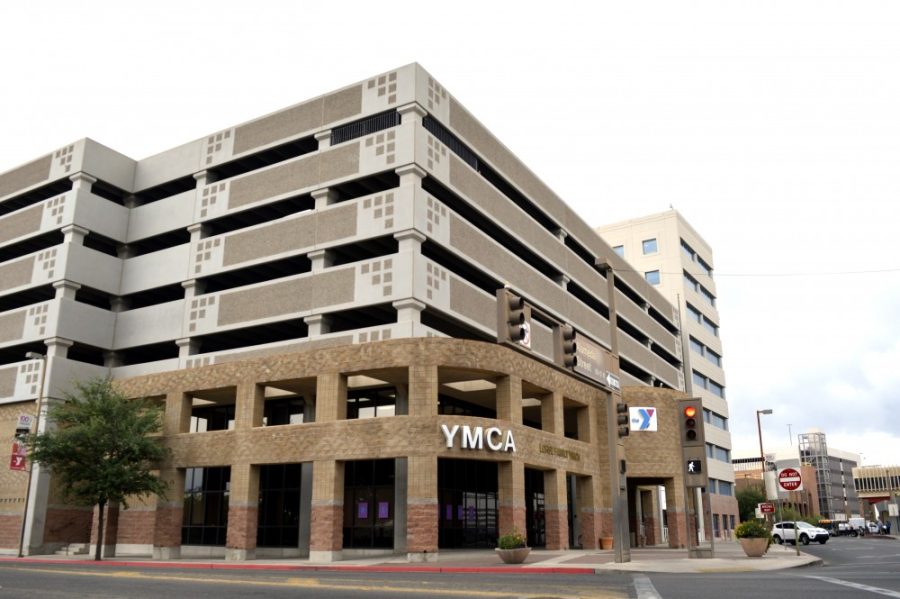The Encourage Practice and Inspire Change Kids Program, created from a partnership between the UA and the YMCA of Southern Arizona, is bringing diabetes prevention education to youths and their families in two Tucson locations.
The program is part of a study on youth diabetes prevention being carried out by a collaboration by the YMCA with various UA colleges including the College of Medicine and the Mel and Enid Zuckerman College of Public Health.
The children involved are between 9 and 12 years old and have risk factors that may lead to their developing Type II diabetes . This means these children are in the 85th percentile for body mass index and have other Type II diabetes risk factors like family history, according to the program’s lead researcher, Melanie Hingle .
The children are measured for things relating to Type II diabetes risk, including height, weight, BMI and blood biomarkers. These measurements are taken before the program, after the program, and then, as a follow up, 12 weeks after the program has finished, according to study coordinator Sofia Gomez . These measurements help researchers see how the program has affected the children’s diabetes risk.
The program itself is 12 weeks long, where children and their families attend hour-and-a-half long sessions once a week at the YMCA to learn about healthy eating, physical activity and other important factors in diabetes prevention. What makes the program unique, though, is that it is the YMCA staff who are involved in carrying out the education portion of the program, Hingle said.
“There are very few … intervention programs for kids at risk of diabetes that are conducted at the YMCA by YMCA staff,” Hingle said. “So we actually are not the people delivering this to the kids. We trained YMCA lifestyle coaches, who are professional health professionals who work for the Y, to deliver the program on our behalf to the families.”
This partnership with the YMCA is part of the community-based nature of the project. The YMCA has played a critical role, according to Gomez.
Besides being community-centric, the YMCA’s establishment across the country is also ideal for the long-term goal of the project, which is to spread the program, if it is successful, to other parts of the country.
“So we thought 70 million people in [the] U.S. live within three miles of a YMCA,” Hingle said. “That presents an opportunity for us because it makes it very accessible for people who may not be able to drive to a program somewhere they would be very close to their YMCA and be able to potentially take a bus or walk there.”
The YMCA also has an adult diabetes prevention program in its facilities across the country and in the Tucson YMCAs since 2011, according to Vivian Cullen, director of Community Outreach and Diabetes Prevention Program of the YMCA of Southern Arizona.
“The way that you deliver a program to kids is going to be different. You have to make it very interactive, very fun, not that the adult program isn’t, …” Cullen said. “With the kids, you have to build in games, you have to build in, of course, that education piece. You know, showing why it’s important to do particular things, but if you don’t make it fun you’re going to lose them.”
The program for youth features education on healthy eating, including hands-on interaction with making food. Hingle said this teaches the kids how to prepare healthy food.
“That’s a skill that’s missing from a lot of people’s lives,” Cullen said. “They don’t know how to make food and then they think healthy food also doesn’t taste good, so we try to correct that misconception.”
The program also works to debunk the myth that exercise is a chore that has to be done at the gym. Hingle said they teach the kids activities they can do as a family to increase their fitness levels. Many of these activities are designed to be portable and can be done with things around the house to keep them inexpensive, according to Cullen.
Another large component of the program is that it is family-oriented, having at least one guardian or parent at the sessions with the children. Having both the parents and children at the sessions is critical, according to Cullen, to achieve the full impact of the program.
“We’re teaching that child, but he or she doesn’t have the power to go home and do the grocery shopping,” Cullen said. “So when you’re working with the family and you’re able to teach the whole family, not just that these are the things that are healthier for you and this is why, [but] you’re able to influence how the whole family sees those things.”
There have been two rounds of the program — one last fall with 28 families, and now one this spring with 20 families, according to Hingle. At the end of this pilot study, the data from the study will be analyzed to determine if there is promising potential for the prevention of diabetes with the program.
The team plans to apply for more funding to expand the program in the future because the federal funding they received from the National Institute of Health ends later this year. Until the data is analyzed and there are more participants in the study, Hingle said they cannot say with certainty that their program has had an impact on diabetes prevention. But for those who do partake, they seem to have a great time, according to Cullen.
“We won’t know totally until all the data is in and we’ve had a chance to analyze it and do some follow-up interviews with folks,” Cullen said. “But on a class-to-class basis, they seem to really be enjoying it.”
Follow Ava Garcia on Twitter.









